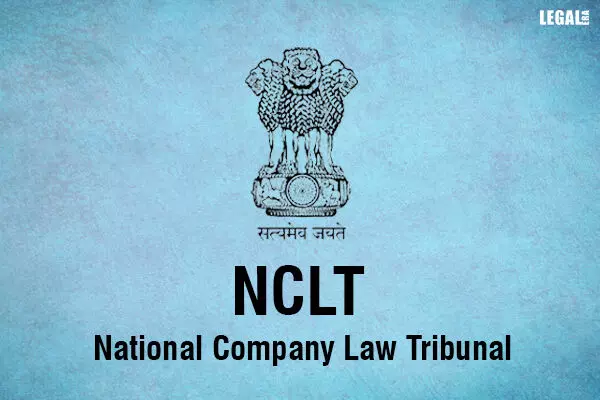- Home
- News
- Articles+
- Aerospace
- Agriculture
- Alternate Dispute Resolution
- Banking and Finance
- Bankruptcy
- Book Review
- Bribery & Corruption
- Commercial Litigation
- Competition Law
- Conference Reports
- Consumer Products
- Contract
- Corporate Governance
- Corporate Law
- Covid-19
- Cryptocurrency
- Cybersecurity
- Data Protection
- Defence
- Digital Economy
- E-commerce
- Employment Law
- Energy and Natural Resources
- Entertainment and Sports Law
- Environmental Law
- FDI
- Food and Beverage
- Health Care
- IBC Diaries
- Insurance Law
- Intellectual Property
- International Law
- Know the Law
- Labour Laws
- Litigation
- Litigation Funding
- Manufacturing
- Mergers & Acquisitions
- NFTs
- Privacy
- Private Equity
- Project Finance
- Real Estate
- Risk and Compliance
- Technology Media and Telecom
- Tributes
- Zoom In
- Take On Board
- In Focus
- Law & Policy and Regulation
- IP & Tech Era
- Viewpoint
- Arbitration & Mediation
- Tax
- Student Corner
- AI
- ESG
- Gaming
- Inclusion & Diversity
- Law Firms
- In-House
- Rankings
- E-Magazine
- Legal Era TV
- Events
- News
- Articles
- Aerospace
- Agriculture
- Alternate Dispute Resolution
- Banking and Finance
- Bankruptcy
- Book Review
- Bribery & Corruption
- Commercial Litigation
- Competition Law
- Conference Reports
- Consumer Products
- Contract
- Corporate Governance
- Corporate Law
- Covid-19
- Cryptocurrency
- Cybersecurity
- Data Protection
- Defence
- Digital Economy
- E-commerce
- Employment Law
- Energy and Natural Resources
- Entertainment and Sports Law
- Environmental Law
- FDI
- Food and Beverage
- Health Care
- IBC Diaries
- Insurance Law
- Intellectual Property
- International Law
- Know the Law
- Labour Laws
- Litigation
- Litigation Funding
- Manufacturing
- Mergers & Acquisitions
- NFTs
- Privacy
- Private Equity
- Project Finance
- Real Estate
- Risk and Compliance
- Technology Media and Telecom
- Tributes
- Zoom In
- Take On Board
- In Focus
- Law & Policy and Regulation
- IP & Tech Era
- Viewpoint
- Arbitration & Mediation
- Tax
- Student Corner
- AI
- ESG
- Gaming
- Inclusion & Diversity
- Law Firms
- In-House
- Rankings
- E-Magazine
- Legal Era TV
- Events
NCLT dismisses Hindustan Times plea stating, "NCLT is an Adjudicating Authority and not a Dispute Redressal Forum"

NCLT dismisses Hindustan Times plea stating, "NCLT is an Adjudicating Authority and not a Dispute Redressal Forum"
The National Company Law Tribunal, Delhi (in short NCLT) in the case of M/s JHS Svendgaard Ltd- applicant/operational creditor vs. M/s. Hindustan Times Media Ltd- respondent/corporate debtor dismissed the petition to initiate Corporate Insolvency Resolution Process (in short CIRP) against Hindustan Times (HT Media Ltd.) and observed that the NCLT is an adjudicating authority and not a dispute redressal forum.
The brief background of the case is that the corporate debtor is a mass media company involved in the business of print, digital and electronic media. The Hindustan Times newspaper is flagship newspaper of Hindustan Times Media. The operational creditor on 25 January, 2017 entered into an Advertising Agreement with corporate debtor and paid a security deposit sum of Rs. Eighty crore and the same was to be used for advertisement services carried out by the corporate debtor.
On 25 January, 2022 the Agreement was terminated by the corporate debtor, however the operational creditor alleged that Rs. five crore thirty-nine lakh thirty-nine thousand four hundred seventy-five out of the total security deposit remained unutilized and should have been refunded. The operational creditor on 21 February, 2022 issued a notice under Section 8 of the Insolvency and Bankruptcy Code, 2016 (in short IBC) to the Corporate Debtor claiming the remaining security amount. No response was received from the corporate debtor.
For claiming the default balance amount of Rs. five crore thirty-nine lakh thirty-nine thousand four hundred seventy-five inclusive of interest the operational creditor filed a petition under Section 9 of IBC and initiated the Corporate Insolvency Resolution Process (in short CIRP) against the corporate debtor to claim its default.
The Tribunal was of the view that there had been difference in interpretation between the parties regarding the overall tenure of the Agreement. The Tribunal stated that it failed to see any unambiguous email or document on record, by the corporate debtor to the applicant which could demonstrate beyond doubt that the corporate debtor had neither extended the overall term of the Agreement or admitted that the Agreement was in existence after January, 2022.
Furthermore, the Tribunal found that there was no addendum to the original Agreement between the parties, which could establish that the tenure of the agreement was extended. Hence, the Tribunal was of the view that the Application pursued was for a disputed debt ant that the NCLT is an Adjudicating Authority and not a dispute redressal forum.
Reliance was placed on the Supreme Court judgment in Mobilox Innovations Pvt. Ltd. v Kirusa Software Pvt. Ltd, 2017, wherein it was held that as long as a dispute truly exists in fact and is not spurious, hypothetical and illusory; the Adjudicating Authority must reject the petition under Section 9 of IBC. According, the Tribunal dismissed the application.




